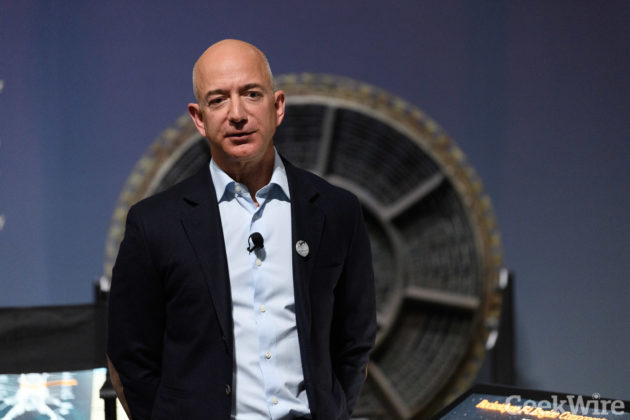
Don’t expect Amazon to follow Google’s lead when it comes to working with the U.S. Department of Defense.
Amazon CEO Jeff Bezos made a surprise appearance at the Wired 25 conference in San Francisco on Monday. In light of Google’s decision last week to pull out of a bid for the DoD’s JEDI cloud computing project, he was asked about his philosophy in regard to big tech companies working with government.
“We are going to continue to support the DoD, and I think we should,” Bezos said. “One of the jobs of a senior leadership team is to make the right decision, even when it’s unpopular. If big tech companies are going to turn their back on the U.S. Department of Defense, this country is going to be in trouble.”
Google referenced its AI principles when announcing its decision to drop out of the JEDI race. It followed a separate decision to let Google’s contract with Project Maven — a separate DoD-attempt to use artificial intelligence to better identify the targets of drone strikes — expire after employee unrest over its involvement.
Bezos reminded the audience that despite the current political climate, “this country is a gem.”
“It is amazing. It’s still the best place in the world,” he said. “It’s the place where people want to come. There aren’t other countries where everybody is trying to get in — I’d let them in if it were up to me, I like them, I want all of them in. But this is a great country and it does need to be defended.”
Amazon Web Services is believed to be the most likely candidate to win the JEDI contract given its history of government work and the scope of its market-leading cloud services, but Microsoft Azure also has the necessary certifications to compete.
Later during the on-stage interview, Bezos took a slight dig at companies such as Google and Facebook when asked about the increased scrutiny of the tech industry. He remains “incredibly optimistic” about technology but noted that it is “always two-sided.”
“Society develops an immune response, eventually, to the bad uses of new technology, but it takes time,” he said. “I see that right now: social media is increasing, unfortunately, identity politics and tribalism. The internet, in its current incarnation, is a confirmation bias machine. If you have a point of view [going in] and do some searches, you find confirmation of your point of view. If your news feed is showing you things, it’s showing you things that confirm your point of view, by and large. So having a technology that increases confirmation bias probably isn’t good, it is going to lead to more tribalism.
“We don’t know the solutions to these problems yet. But we’ll figure them out.”



